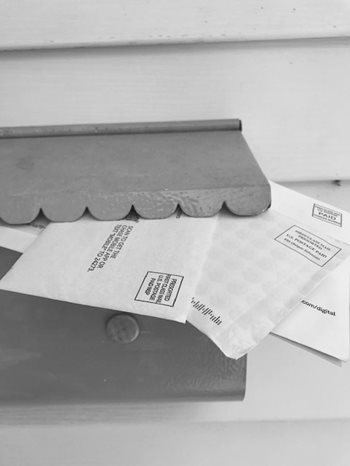When people seek to improve their finances, credit is one of the top three concerns people have, believes Sarah Chenven, chief operating and strategy officer for Credit Builders Alliance (CBA). Financial Capability Month, designated each April, is a time set aside to focus on and encourage understanding of the barriers to financial well-being, and foster action to build financial capability. Credit is one of the issues that often trips people up, making it a good topic to explore during this month.
Chenven, who serves on the board of CASA of Oregon, a NeighborWorks organization, says she hasn’t seen a dramatic drop in people's credit scores over the past 12 months. With the financial upheaval related to the pandemic, a drop might have been the expectation. Instead, she says, the Coronavirus Aid Relief and Economic Security Act required and encouraged creditors to make arrangements for payments for borrowers in a bind. "A lot of people were able to get those modifications," she says.
 The last 12 months have also seen a decline in credit card use. Many people have even managed to put federal stimulus checks into savings. At NeighborWorks America network organizations, counselors and coaches work with individuals to get their financial house in order and show that they can build credit by working with landlords to make on-time rental payments. That's made a difference this year, too.
The last 12 months have also seen a decline in credit card use. Many people have even managed to put federal stimulus checks into savings. At NeighborWorks America network organizations, counselors and coaches work with individuals to get their financial house in order and show that they can build credit by working with landlords to make on-time rental payments. That's made a difference this year, too.
But large disparities existed before the pandemic, and "those disparities continue to exist," Chenven says. According to a study from the Urban Institute that examined credit scores starting in February 2020, racial disparities in credit health "reflect historical inequity that reduced wealth and limited economic choices for communities of color." Their data shows that while credit health improved during the pandemic, racial gaps remain wide.
Credit scores are used by auto and mortgage lenders and credit card issuers when they’re considering providing a loan or a credit card. Those scores also affect the deal applicants get on those loans. Employers may also review credit reports when assessing new employees.
The good news, Chenven says, is that with some work, individuals can improve their credit scores relatively quickly. That’s a message she wants people to receive when they’re wrestling with their credit scores. "No matter how much you earn, even if you have limited income, you can improve your credit," she says. "It’s a message of hope in a situation where everything feels overwhelming."
relatively quickly. That’s a message she wants people to receive when they’re wrestling with their credit scores. "No matter how much you earn, even if you have limited income, you can improve your credit," she says. "It’s a message of hope in a situation where everything feels overwhelming."
Chenven offers these tips:
- Pay on time. The most important thing is look at all of your credit accounts and debt and make sure you’re paying on time
- Make an arrangement. If you can’t pay on time, try to make a payment arrangement with your creditor.
- Examine your credit utilization ratio. If you have a credit card and you carry debt on that card, make sure you try to keep that debt to available credit ratio at 30% or less.
- Keep your inquires down. If you don’t need another credit card, don’t get one. Don’t apply for credit cards or credit unless you need it. Keep your inquiries about credit down, especially at a time like this. A lender sees a number of reports that show you’re applying for more credit as a red flag.
- Check on your credit report. Check every four to six months, to make sure there are no credit cards or balances you might have forgotten about, Chenven recommends. Visit annualcreditreport.com if you’re checking your own scores. If you find something unexpected, work with creditors to address them as quickly as possible.
- Work with a financial coach or counselor! Check out NeighborWorks network organizations and CBA’s nonprofit member organizations in your area that might offer this service.
Checking your credit report is a great way to set the foundation for improving your credit score, says Molly Barackman-Eder, senior financial capability manager at NeighborWorks America. "It doesn’t cost anything to look at, and if nothing unusual appears on your report you’ll have peace of mind knowing that you don’t have any unpleasant surprises lurking the next time you need to use your credit score for something. If you see anything inaccurate on your report, you can take steps on your own to remove it either by noting the error or by paying off what you owe."
And you don’t have to do it alone, Barackman-Eder reminds. "If taking the first step feels too intimidating, there are financial coaches who can help you make a realistic action plan for credit issues." NeighborWorks network organizations stand ready to help clients work on their financial capability through classes and coaching.

